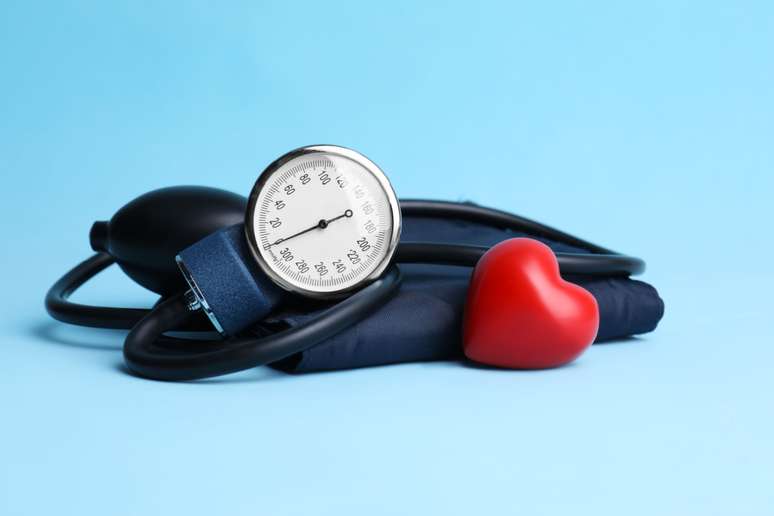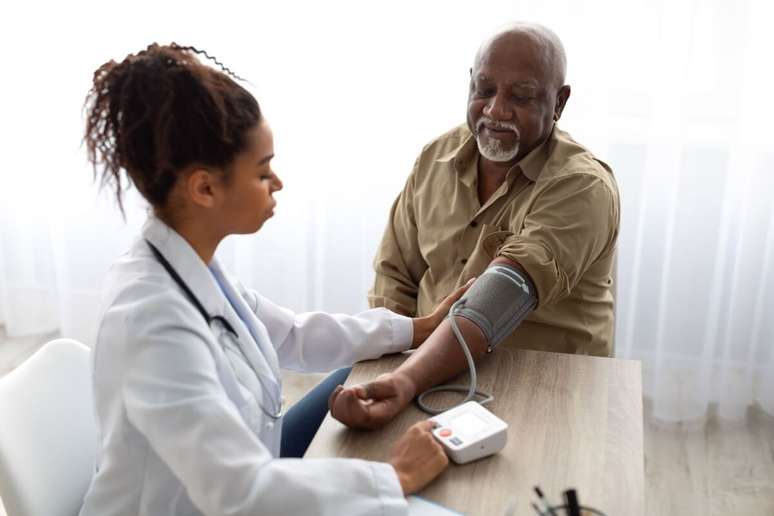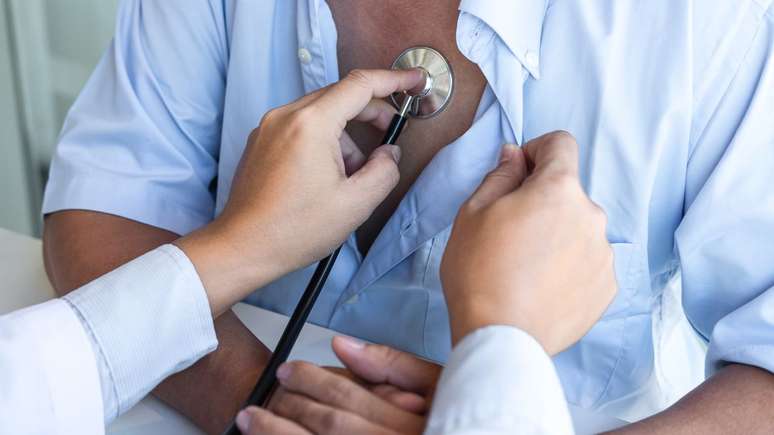The doctor explains the dangers of these diseases and advises how to keep them under control
Systemic arterial hypertension, popularly known as high blood pressure, is a health condition that affects approximately 45% of the Brazilian population, according to the World Health Organization (WHO), representing one of the main causes of death in the country. This disease, which attacks the blood vessels, heart, brain and eyes, can lead to kidney failure and other serious problems if not properly controlled.
According to data from the Ministry of Health and the Pan American Health Organization (PAHO), hypertension is responsible for the deaths of more than a thousand people every hour, many of which could be avoided with simple prevention and awareness measures. While there is no cure, it can be controlled if diagnosed early, making routine tests and information about the disease essential to saving lives.
To clarify the most common doubts on the topic, Dr. Marcelo Pinho, AmorSaúde cardiologist, answers in this article the 10 most frequently asked questions about hypertension. Watch!
1. How does high blood pressure affect different systems in the body?
First of all it is important to remember this systemic arterial hypertension is the name of the disease. Because it is systemic, there is unwanted vasoconstriction of various blood supplies in the veins and arteries that nourish our organs. Therefore, damage can occur to the vision, kidneys, heart and many other organs, such as the brain, causing strokes.
2. Are there specific factors that increase the risk of developing hypertension?
Yes I’m here. Risk factors for developing hypertension include smoking, alcoholism and sedentary lifestyle. Additionally, we have the age factor which affects women over 60 and men over 65, but it is worth noting that women are more likely to develop the disease.
3. What are the impacts of hypertension?
Hypertension is very silent, rarely diagnosed by symptoms. Normally, when the patient finds out, he has already been developing this disease for some time. Depending on when the patient requires treatment, hypertension may be too advanced to begin the control phase – because there is no cure – and this can lead to the patient having other diseases, such as heart failure, kidney failure, worsening diabetes and other diseases. things that will hinder his coexistence in society.
4. What are the implications of hypertension during pregnancy?
TO pregnancyAfter the twentieth week, it is natural for women to have a slight increase in blood pressure due to pregnancy. However, when an increase occurs outside the limits, which are not tolerable for this period, hypertension can cause various effects, such as stroke, heart attack and renal failure in the mother, as well as effects on pregnancy, such as placental abruption, malformation of the fetus and other significant changes.
5. What are the consequences of untreated hypertension?
Hypertension, if left untreated, will inevitably lead to acute or chronic organ failure, such as:
- OR heart attack acute myocardial injury, an event that can cause death or cardiac arrhythmias;
- Stroke, which can be temporary or fixed, causing sequelae;
- Acute renal failure or chronic renal failure;
- As well as vision loss and countless other factors.
6. How do genetics play a role in predisposition to hypertension?
The most significant advance we have had in recent times is the discovery of the hypertension gene, STK39. What we can say in practice is that if you have a hypertensive father or mother, you have a 25% chance of having the disease. If you have a hypertensive father and mother, you have a 50% chance of developing hypertension due to genetics alone, excluding your lifestyle habits.

7. What is the relationship between hypertension and other health conditions?
When hypertension is not the underlying cause, it basically goes hand in hand with diabetes and is aggravated by external factors such as dyslipidemia, i.e. an increase in cholesterol and triglycerides. The entire group together will cause serious complications, which can lead to consequences such as stroke and heart attack. It is worth noting that hypertension is closely related to diabetes, forming a pair in which one disease causes the other and causes complications.
8. In addition to blood pressure, what are the additional markers to evaluate the cardiovascular risk of a hypertensive patient?
Health professionals use factors such as diabetes, dyslipidemia, sedentary lifestyle, smoking, alcoholism, genetic factors and stress level as additional indicators. In this way we evaluate the entire context of exposure and have a global cardiovascular picture of the patient, being able to calculate the risk of developing diseases related to the heart and brain.
9. What are the most effective strategies for predicting the progression of hypertension?
If there is someone in your family who suffers from hypertension, your father, your mother or both, you should go to the doctor regularly and get into the habit of check your blood pressureat least every semester. The advice is not to go more than a year without checking your blood pressure and, from the moment it no longer drops to 130 over 80 – which is the maximum value -, know that you have become pre-hypertensive and should contact your doctor. cardiologist to better formulate this diagnosis. In addition to the diagnosis, the professional will suggest you improve your healthy lifestyle habits and advise you to get into the habit of checking your blood pressure and, whenever it changes, to ask for help.
10. Is hypertension a treatable condition?
Unfortunately, hypertension is only controlled in most cases. But it is worth noting that healing can occur in the pre-hypertension stages, when increased blood pressure is related to weight gain. In this case, when the patient loses weight, the condition returns to normal.
There is also the possibility that the change causing hypertension is called secondary, that is, that some other disease causes the increase in blood pressure. This includes kidney disease, corticosteroid use, and even anxiety, which is a very common factor in hypertension attacks. In these scenarios, by treating the disease, we treat the condition of increase in pressure.
However, when the cause of hypertension is primary, diagnosed by genetic and other factors already mentioned, it can only be controlled with medications and healthy practices and cannot be resolved with a spontaneous cure.
By Milena Almeida
Source: Terra
Ben Stock is a lifestyle journalist and author at Gossipify. He writes about topics such as health, wellness, travel, food and home decor. He provides practical advice and inspiration to improve well-being, keeps readers up to date with latest lifestyle news and trends, known for his engaging writing style, in-depth analysis and unique perspectives.





![Plus Belle La Vie Adher: Idriss is investigating his lost sister … which awaits you for a week until August 25, 2025 [SPOILERS] Plus Belle La Vie Adher: Idriss is investigating his lost sister … which awaits you for a week until August 25, 2025 [SPOILERS]](https://fr.web.img2.acsta.net/img/6c/7e/6c7ebcda59f7c6ff82aa058e2db05e10.jpg)


